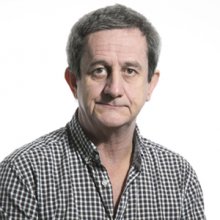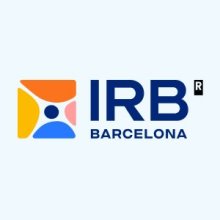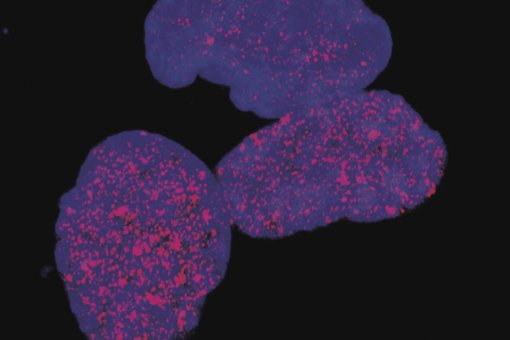Participants





Contact

The study, published in Nature Cell Biology, focuses on the cell organelle known as centrosome, which organises the network of microtubules that serves as the cell’s skeleton.
ICREA research professor, Cayetano González and his group "Cell Division Lab" at the Institute for Research in Biomedicine (IRB Barcelona) have published a new study in Nature Cell Biology that contributes one important step towards elucidating the molecular mechanisms that some stem cells use to renew themselves while generating daughters that differentiate. The scientists using as a model system the Drosophila neuroblast, the neural stem cell that generates the fly’s neural tissue, identified a protein, named Centrobin, that plays a key role in stem cell division.
The study focuses on the cell organelle known as “centrosome”, which organises the network of microtubules that serves as the cell’s skeleton. In most animal cells, from worms to humans, a typical centrosome is composed of two barrel-shaped structures called “centrioles” surrounded by pericentriolar material that has a strong microtubule nucleation activity. For each centriole pair, one of the centrioles, called “mother”, is one cell cycle older than the other, called “daughter”. Previous results from the Gonzalez’s lab have shown that in Drosophila neuroblasts during interphase, when the cell is not dividing, only the daughter centriole is embedded in pericentriolar material forming a structure that organises a large microtubule array that plays a key role in instructing the orientation of the next cell division. When the cell divides, the daughter centriole is retained by the renewed neuroblast.
This new study reports that Centrobin is both necessary and sufficient to enable daughter centrioles to bind the pericentriolar material that organises the interphase microtubule aster in Drosophila neuroblasts. Centrobin is present in daugther centrioles and absent in mother centrioles. The published article shows that daughter centrioles experimentally depleted of Centrobin cannot bind pericentriolar material while mother centrioles modified to carry Centrobin can. They also show that within the cell, Centrobin is physically bound to a set of known centriolar and pericentriolar material proteins, thus identifying a molecular pathway that might account for Centrobin’s function. Remarkably Centrobin can only perform its function if phosphorylated by Polo, hence revealing an interphase role of this essential kinase in daughter centriole retention by Drosophila neural stem cells.
An article published last year by scientists working in the Division of Cancer Diagnosis in the Saitaman Cancer Center, in Japan, showed that when human neuroblastoma cells divide, the daughter cell that retains more self-renewal (meaning, malignancy) potential, frequently inherits the daughter centrosome that, also in human cells, carries Centrobin. This observation suggests the tantalizing possibility that the daughter centriole specific behaviour discovered in Drosophila neuroblasts might also occur in mammals and may have relevance in human disease.
Reference article
Centrobin controls mother_daughter centriole asymmetry in Drosophila neuroblasts
J. Januschke, J. Reina, S. Llamazares, T. Bertran, F. Rossi, J. Roig and C. Gonzalez
Nature Cell Biology (2013) doi: 10.1038/ncb2671
About IRB Barcelona
The Institute for Research in Biomedicine (IRB Barcelona) pursues a society free of disease. To this end, it conducts multidisciplinary research of excellence to cure cancer and other diseases linked to ageing. It establishes technology transfer agreements with the pharmaceutical industry and major hospitals to bring research results closer to society, and organises a range of science outreach activities to engage the public in an open dialogue. IRB Barcelona is an international centre that hosts 400 researchers and more than 30 nationalities. Recognised as a Severo Ochoa Centre of Excellence since 2011, IRB Barcelona is a CERCA centre and member of the Barcelona Institute of Science and Technology (BIST).



